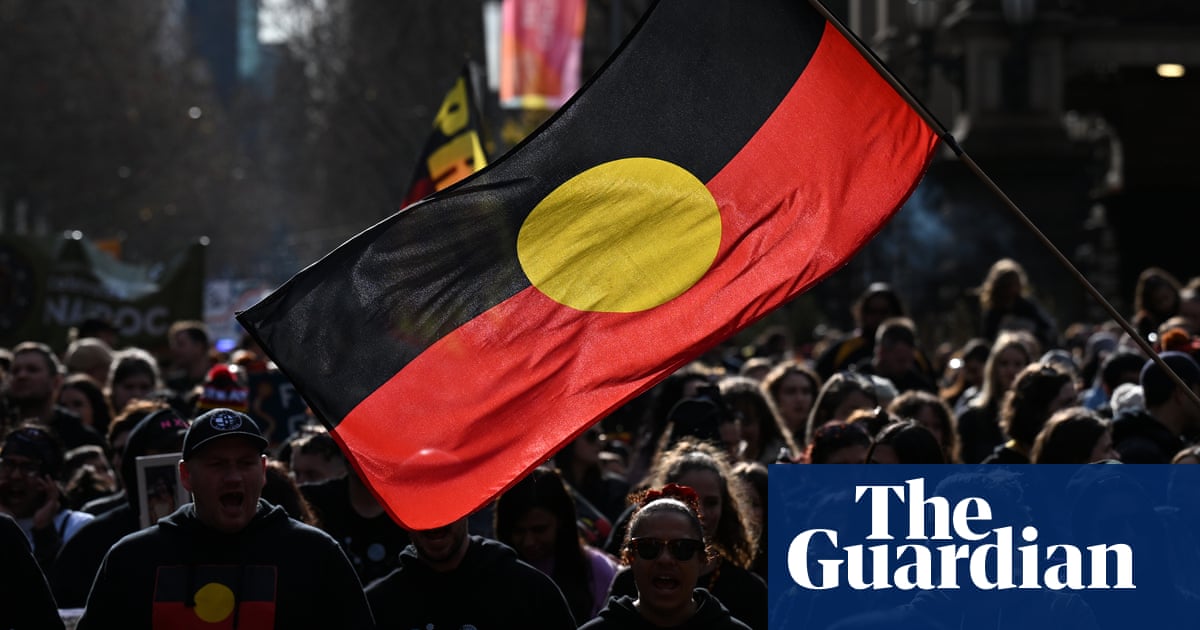Victoria will have a permanent Indigenous voice to state parliament, with the progressive crossbench throwing their support behind a plan to allow the First Peoples’ Assembly’s work to continue following treaty.
Guardian Australia understands the Victorian government will introduce a treaty bill to parliament later this year, which will formalise the First Peoples’ Assembly of Victoria as an advisory body.
According to a senior government source not authorised to speak publicly about the bill, it will see the Assembly renamed and granted statutory powers in relation to matters affecting Aboriginal Victorians.
While the government will be required to consult the body on such matters, it will not have veto power over parliament, the source said.
Sign up for Guardian Australia’s breaking news email
They said it will be introduced when parliament returns from winter break, most likely in September.
While The Greens, Animal Justice party and Legalise Cannabis are yet to see the bill, they have told Guardian Australia they support the Assembly having a permanent role. This would give the government the numbers it needs for the bill to pass the upper house.
The First Peoples’ Assembly – formed in 2018 to represent Aboriginal and Torres Strait Islander peoples in treaty discussions – had beencalling on the government to make it’s role permanentfor some time.
The Assembly has held two elections and helped establish the treaty framework, including the treaty authority and a self-determination fund, and a landmark truth-telling process.
In a joint update to treaty negotiations last month, the Assembly and the government said work had progressed on the “ongoing role for the First Peoples’ Assembly”, which will ensure “First Peoples can make decisions on matters that impact their futures and play an ongoing role in truth-telling”.
The premier,Jacinta Allan, told reporters on Monday that negotiations were still under way, but formalising the Assembly as a permanent advisory body would be a “simple commonsense change”.
She compared listening to the Assembly to how the government has responded to community concerns on other issues, including cost of living, bail reform and housing
“When you listen to people, you get better outcomes, and that’s what treaty is all about. I reckon we’re up for that as a state,” Allan said.
She rejected comparisons to thefederal voice to parliamentproposed at the 2023 referendum, as it would not be “changing the Victorian constitution”.
The opposition leader, Brad Battin, on Monday ruled out backing the plan, noting his party had withdrawn support for the treaty process after the federal referendum result.
“Trying to introduce legislation to have a voice to parliament here in Victoria, after Victorians have already said no, flies in the face of democracy,” Battin told reporters.
Sign up toBreaking News Australia
Get the most important news as it breaks
after newsletter promotion
The Victorian Greens leader, Ellen Sandell, said her party proudly supported the Assembly and that it was “sad and disappointing to see the Liberals attacking the solutions that Aboriginal and Torres Strait Islander communities are telling us they need”.
Animal Justice party MP Georgie Purcell said she “unequivocally supports” the advisory body and that it would be a “disservice to Victoria’s proud Aboriginal communities if a permanent First Peoples’ Assembly resulted in a Dutton-style scare campaign”.
“Victorians have voted resoundingly for treaty at two elections and the First Peoples’ Assembly is just one component of this process,” Purcell said.
Legalise Cannabis MP, Rachel Payne, described the treaty process as an “opportunity” to “elevate First Nations voices”, while her colleague, David Ettershank, said the party was “strongly supportive” of the Assembly’s “ongoing involvement in Victorian governance”.
Enshrining the Assembly in law as a permanent body would bring Victoria in line with South Australia, which became the first state to have anIndigenous voice to parliamentin 2023.
It comes asthe Yoorrook Justice Commission– Victoria’s formal truth-telling body – completed its work this month.
It submitted two major reports to government: one with 100 recommendations and another an official public record of the history of Victoria since colonisation. It is understood the reports will be tabled in parliament on Tuesday.
